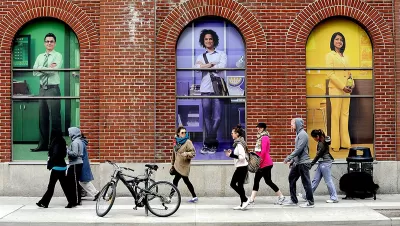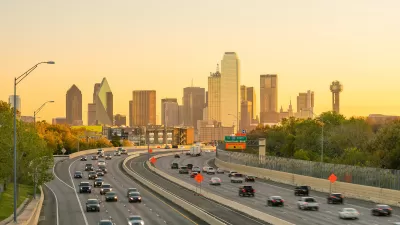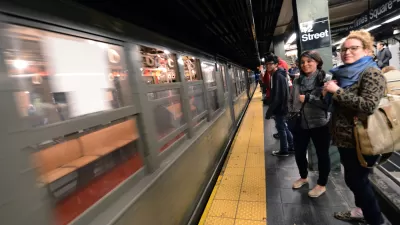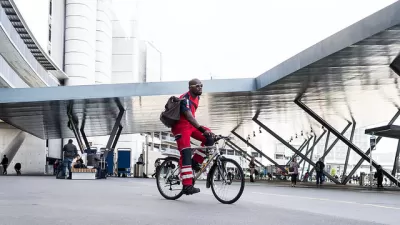Many planners say they want to try out active commutes when in-office work becomes possible. How will a fresh look at their local streets influence planning professionals and planning practice?

A survey of 1,000 planning professionals conducted by Kittelson & Associates asked whether remote work has changed preferences about commuting to work. A surprising number of workers in government and the built environment professions want to try an active commute once they return to the office post-pandemic the survey finds—a change in habits that might reduce the widespread windshield bias that has subtly shaped city decision making for generations.
"Like several broader studies have found, many respondents remain shy of returning to public transportation, but 23 percent of workers who previously took transit every day indicated that they plan to try a bike, walk, or other active commute once they can return to the workplace — compared to about 18 percent that will commute solo by car," writes Kea Wilson.
Equally important, 44 percent of survey respondents said they would opt for biking or walking over mass transit commutes in the future. Only .5 percent of Americans in the transportation industry chose active commuting in 2014, according to an American Community Survey survey.
"One thing’s for sure: if all these powerful people actually make good on their intentions to try walking, biking, or wheeling to work, they may get a glimpse of their communities they’ve never seen before. And if they don’t like what they see, maybe they’ll start thinking about how to make our roads better for the rest of us," opines Wilson.
FULL STORY: Study: COVID-19 Might Finally Get City Planners Out of Their Cars

Planetizen Federal Action Tracker
A weekly monitor of how Trump’s orders and actions are impacting planners and planning in America.

Congressman Proposes Bill to Rename DC Metro “Trump Train”
The Make Autorail Great Again Act would withhold federal funding to the system until the Washington Metropolitan Area Transit Authority (WMATA), rebrands as the Washington Metropolitan Authority for Greater Access (WMAGA).

The Simple Legislative Tool Transforming Vacant Downtowns
In California, Michigan and Georgia, an easy win is bringing dollars — and delight — back to city centers.

The States Losing Rural Delivery Rooms at an Alarming Pace
In some states, as few as 9% of rural hospitals still deliver babies. As a result, rising pre-term births, no adequate pre-term care and harrowing close calls are a growing reality.

The Small South Asian Republic Going all in on EVs
Thanks to one simple policy change less than five years ago, 65% of new cars in this Himalayan country are now electric.

DC Backpedals on Bike Lane Protection, Swaps Barriers for Paint
Citing aesthetic concerns, the city is removing the concrete barriers and flexposts that once separated Arizona Avenue cyclists from motor vehicles.
Urban Design for Planners 1: Software Tools
This six-course series explores essential urban design concepts using open source software and equips planners with the tools they need to participate fully in the urban design process.
Planning for Universal Design
Learn the tools for implementing Universal Design in planning regulations.
Smith Gee Studio
City of Charlotte
City of Camden Redevelopment Agency
City of Astoria
Transportation Research & Education Center (TREC) at Portland State University
US High Speed Rail Association
City of Camden Redevelopment Agency
Municipality of Princeton (NJ)





























